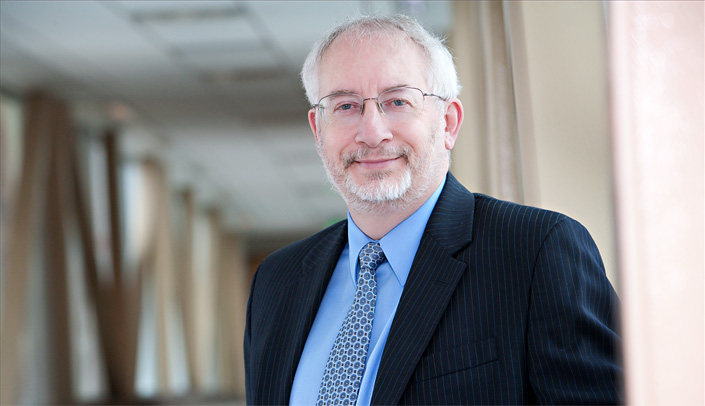Let me begin by congratulating the more than 120 fourth-year students who went through Match Day on March 20. This year’s class marked the first class that has been here for all four years of my deanship.
Match Day is always an exciting event, but – for me – this made it even more meaningful. My best wishes to all our graduating med students as they enter the next phase of their careers. Regardless of whether they are staying here or going elsewhere for the next phase of training, they will always be part of UNMC. They are the true ambassadors of what UNMC is all about.
I would like to focus the remainder of my remarks this month on a very different topic. With all the attention that’s been directed toward the formation of Nebraska Medicine and our LCME review over the past year, it’s probably safe to say that other key elements of the College of Medicine have not gotten the recognition they deserve.
One such element is our strong laboratory-based research programs (often referred to as basic research). With much of our laboratory research now involving human tissues and clear goals of translating the research into new diagnostic and therapeutic advances, calling it basic research really is a misnomer.
Let me assure you, the research being carried out in our laboratories is absolutely critical to the success of our medical center. Laboratory-based research is the cornerstone of our research enterprise. It accounts for all our large federal research grants.
Funding from the National Institutes of Health is the absolute gold standard for which researchers strive, and laboratory-based research funding from the NIH is – without question – the barometer by which research programs at medical schools and academic medical centers are measured.
Nearly 800 people are involved in conducting research at UNMC, with nearly half of those involved in laboratory-based research. Over the past three years, we have recruited more than 15 new laboratory-based scientists to UNMC. Launching a career in research is far from easy, especially in light of the shrinking NIH research budget over the last several years.
Each year, we recognize the accomplishments of one of our new research faculty with the Joseph P. Gilmore Distinguished New Investigator Award. As detailed in the story on the Gilmore Award in this newsletter, this year’s recipient is Dr. Melissa Teoh-Fitzgerald, an assistant professor in biochemistry and molecular biology, whose research focuses on the investigation of the role of an antioxidant enzyme referred to as extracellular superoxide dismutase, in the pathogenesis of breast cancer. Congratulations are certainly in order to her for this well-deserved recognition.
To be successful in today’s research world, one certainly has to have scientific knowledge and training, perseverance, and creativity, which certainly describes Dr. Teoh-Fitzgerald. However, successful careers in research also are very much about the support of the broader institutional community.
Given the complexity of modern science, modern research programs usually require extensive collaboration among investigators with different areas of expertise. This allows them to explore novel ways of thinking about problems along with applying different approaches to solve them. Great individual scientific accomplishments usually are the result of being surrounded by equally great collaborators, students, and post-docs.
Furthermore, the mentoring provided by mid-career and senior faculty to junior faculty can make all the difference in the world as to whether that individual is successful or not in their career.
Senior faculty, including the chairs of each our basic science departments, have spent countless hours over the years mentoring young faculty and in the process have helped launch the careers of many of our most successful scientists.
Mentoring is something that we don’t appreciate enough. So, let me thank each of you who take time away from your busy schedules to support the career development of our faculty and trainees. UNMC would not have the strong research programs that it does without your efforts.
Research is one of the key things that distinguish academic medical centers from other hospitals and health care systems. Although the focus of my comments today have been on the laboratory-based research programs in the college, they could have as easily been about our clinical research programs.
Our research efforts keep pushing us to be better and make us special. Our students benefit from it. Our patients benefit from it. And the entire state of Nebraska benefits from it. Thank you to all the people who make our UNMC research enterprise thrive.
Bradley Britigan, M.D.
College of Medicine dean
